EMINA lab

EMINA (Electron Microscopies and Nanoscopies) is a research group coordinated by Prof. Marco Rossi. It is a nanoscience and nanotechnology oriented group that brings together senior researchers, postdoctoral associates, PhD students and undergraduate students.
There is no doubt that nanoscience and nanotechnology are revolutionary quests that will transform almost everything we do, the way we live and work, and the organizations around us. Nanometrology, i.e. the capability to measure the nanoworld, is a major thrust for our research work.
The evolution of nano-science and technology has empowered new approaches to designing and controlling materials properties at the atomic and molecular length scales. Intrinsic or induced structural changes in nano-materials can lead to dramatic variation in their physical properties. The main challenge in this field is represented by conceiving and developing new measurement techniques and standards which meet the next-generation fabrication and failure-analysis needs.
Research activities of the laboratory are mainly focused to advance materials research through the developing of new nanocharacterization tools for different types of samples.
EMINA (Electron MIcroscopies and NAnoscopies) group is committed with the development of nanometer scale measurements techniques and methodologies, based on the combined and synergistic use of electron microscopies and diffractions and atomic force microscopies (AFM).
In particular, the team has a long and well recognized reputation in the field of Carbon-based nanomaterials (from nanographites to ultrananodiamond) with more 120 publications on the more important international scientific journals.
In the last recent years, a relevant part of research activity is also devoted to define new methodologies and strategies for soft matter imaging (from polymers to biological objects) through a combined and synergistic use of electron microscopies, diffraction techniques and scanning probe microscopies with related spectroscopies.
We are also committed to moving science to the market place. The ability to see applications and develop commercial products is important to us. So we are strengthening our engineering and technology capabilities. With nanoscience we will discover new properties, create improved functionalities and press these gains forward to new devices and systems. We are eager to make revolutionary strides in putting nanotechnology to work for the benefit of humanity.
We realize that collaboration and teamwork are absolutely essential. The complexity of the technical challenges we face requires this.
The experimental activities are carried out in the EMINA labs, located in the Dept. of Basic and Applied Sciences for Engineering, and in the Sapienza Nanosciences and Nanotechnologies (SNN) lab of the Center for Nanotechnologies for Engineering (CNIS).
The available techniques are mainly based on electron and X-Ray diffraction (RHEED, TED and XRD), electron microscopies (TEM, SEM) and probe microscopies (AFM, SPM), benefiting of the new state-of-art instrumental platforms recently installed.
The international relations of the laboratory include projects and scientific contacts with research community across the world, including France, Germany, Russia, USA, UK, Ukraine and other countries.
Furthermore we gladly seek to work as partners with other laboratories, universities, companies and others. Let us work together on this exciting journey.



